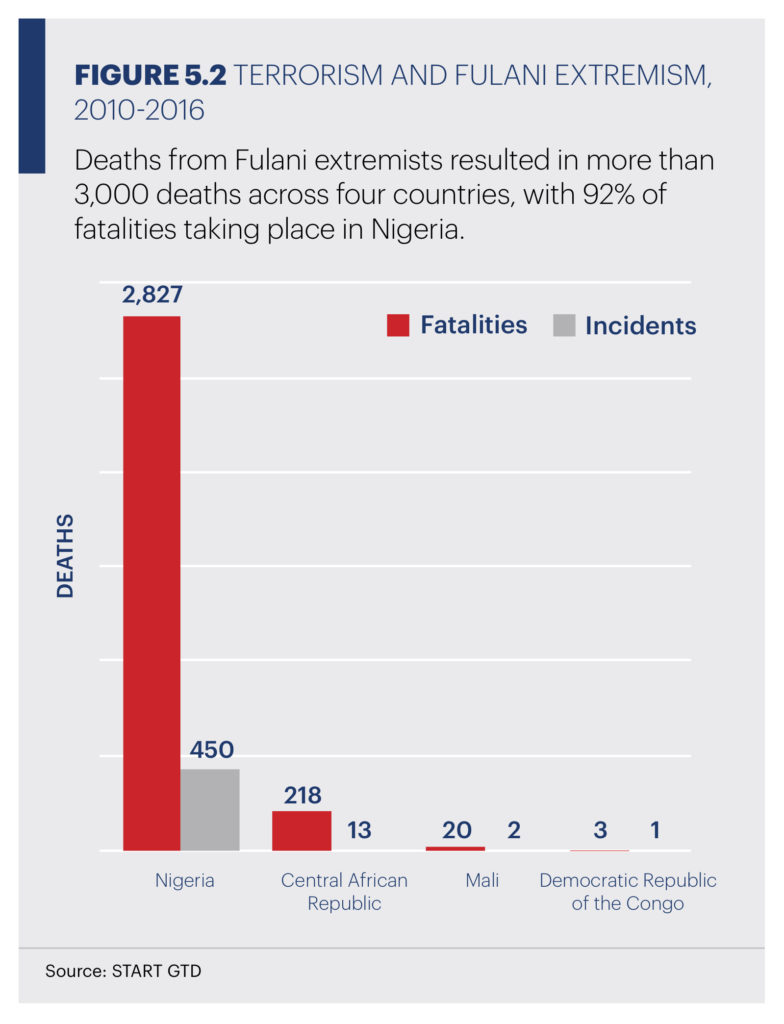ICON: This is a long time coming, as many have known this to be the case already, but it has not been acknowledged by the Federal Government. Please read the following article published by AP.
By SAM OLUKOYA (Jul. 26, 2018)
LAGOS, Nigeria (AP) — Nigeria now faces a deadlier threat than its own Boko Haram insurgency, with fighting between farmers and herdsmen over scare resources killing far more people this year, a new report said Thursday.
The violence “threatens to become even deadlier” and could undermine national stability ahead of elections next year, the International Crisis Group report says, adding that the conflict “has taken on dangerous religious and ethnic dimensions.”
More than 1,300 Nigerians died from the farmer-herder conflicts in the first half of this year, while the death toll from the Nigeria-based Boko Haram’s insurgency was about 250.
The clashes are a growing security concern in Africa’s most populous country, which is roughly split between Muslims in the north and Christians in the south.
The herders, mainly Muslims from the Fulani ethnic group, and the mostly Christian farmers are fighting over land and water in Nigeria’s fertile central region. The threat from Boko Haram in the country’s north has pushed the herders south into more heavily populated areas in search of grazing land, while climate change is also a factor.
Nigerians were shocked last month when more than 200 people were killed after herdsmen invaded a number of villages in Plateau State. The government sent in counterterror units to end the bloodshed in one of the deadliest such confrontations this year.
The government of President Muhammadu Buhari, a Muslim former military ruler who won office in a democratic transfer of power in 2015, has not done enough to contain the conflict, the new report says.
Presidential spokesman Garba Shehu did not respond to requests for comment.
Additional thoughts:
Tensions and violence have increasingly flared between herders and farmers with some estimates suggesting that in Nigeria alone up to 60,000 people have been killed in clashes since 2001.
Tensions between the Fulani, the majority of whom are Muslim, and farmers, of whom the majority in Nigeria for example are Christian, is largely driven by economic causes and low levels of peace.
Between 2010 and 2016, Fulani extremists were responsible for 466 terrorist attacks and 3,068 fatalities in four countries, as seen in Figure 5.2.
